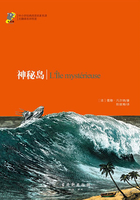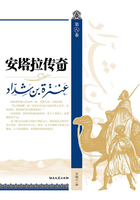"The Fortune of the Rougons" is the initial volume of the Rougon-Macquart series. Though it was by no means M. Zola's first essay in fiction, it was undoubtedly his first great bid for genuine literary fame, and the foundation of what must necessarily be regarded as his life-work. The idea of writing the "natural and social history of a family under the Second Empire," extending to a score of volumes, was doubtless suggested to M. Zola by Balzac's immortal "Comedie Humaine." He was twenty-eight years of age when this idea first occurred to him; he was fifty-three when he at last sent the manuscript of his concluding volume, "Dr. Pascal," to the press. He had spent five-and-twenty years in working out his scheme, persevering with it doggedly and stubbornly, whatever rebuffs he might encounter, whatever jeers and whatever insults might be directed against him by the ignorant, the prejudiced, and the hypocritical. Truth was on the march and nothing could stay it; even as, at the present hour, its march, if slow, none the less continues athwart another and a different crisis of the illustrious novelist's career.
It was in the early summer of 1869 that M. Zola first began the actual writing of "The Fortune of the Rougons." It was only in the following year, however, that the serial publication of the work commenced in the columns of "Le Siecle," the Republican journal of most influence in Paris in those days of the Second Empire. The Franco-German war interrupted this issue of the story, and publication in book form did not take place until the latter half of 1871, a time when both the war and the Commune had left Paris exhausted, supine, with little or no interest in anything. No more unfavourable moment for the issue of an ambitious work of fiction could have been found. Some two or three years went by, as I well remember, before anything like a revival of literature and of public interest in literature took place. Thus, M. Zola launched his gigantic scheme under auspices which would have made many another man recoil. "The Fortune of the Rougons," and two or three subsequent volumes of his series, attracted but a moderate degree of attention, and it was only on the morrow of the publication of "L'Assommoir" that he awoke, like Byron, to find himself famous.
As previously mentioned, the Rougon-Macquart series forms twenty volumes. The last of these, "Dr. Pascal," appeared in 1893. Since then M. Zola has written "Lourdes," "Rome," and "Paris." Critics have repeated?ad nauseam?that these last works constitute a new departure on M. Zola's part, and, so far as they formed a new series, this is true. But the suggestion that he has in any way repented of the Rougon-Macquart novels is ridiculous. As he has often told me of recent years, it is, as far as possible, his plan to subordinate his style and methods to his subject. To have written a book like "Rome," so largely devoted to the ambitions of the Papal See, in the same way as he had written books dealing with the drunkenness or other vices of Paris, would have been the climax of absurdity.
Yet the publication of "Rome," was the signal for a general outcry on the part of English and American reviewers that Zolaism, as typified by the Rougon-Macquart series, was altogether a thing of the past. To my thinking this is a profound error. M. Zola has always remained faithful to himself. The only difference that I perceive between his latest work, "Paris," and certain Rougon-Macquart volumes, is that with time, experience and assiduity, his genius has expanded and ripened, and that the hesitation, the groping for truth, so to say, which may be found in some of his earlier writings, has disappeared.
At the time when "The Fortune of the Rougons" was first published, none but the author himself can have imagined that the foundation-stone of one of the great literary monuments of the century had just been laid. From the "story" point of view the book is one of M. Zola's very best, although its construction—particularly as regards the long interlude of the idyll of Miette and Silvere—is far from being perfect. Such a work when first issued might well bring its author a measure of popularity, but it could hardly confer fame. Nowadays, however, looking backward, and bearing in mind that one here has the genius of M. Zola's lifework, "The Fortune of the Rougons" becomes a book of exceptional interest and importance. This has been so well understood by French readers that during the last six or seven years the annual sales of the work have increased threefold. Where, over a course of twenty years, 1,000 copies were sold, 2,500 and 3,000 are sold to-day. How many living English novelists can say the same of their early essays in fiction, issued more than a quarter of a century ago?
I may here mention that at the last date to which I have authentic figures, that is, Midsummer 1897 (prior, of course, to what is called "L'Affaire Dreyfus"), there had been sold of the entire Rougon-Macquart series (which had begun in 1871) 1,421,000 copies. These were of the ordinary Charpentier editions of the French originals. By adding thereto several?editions de luxe?and the widely-circulated popular illustrated editions of certain volumes, the total amounts roundly to 2,100,000. "Rome," "Lourdes," "Paris," and all M. Zola's other works, apart from the "Rougon-Macquart" series, together with the translations into a dozen different languages—English, German, Italian, Spanish, Dutch, Danish, Portuguese, Bohemian, Hungarian, and others—are not included in the above figures. Otherwise the latter might well be doubled. Nor is account taken of the many serial issues which have brought M. Zola's views to the knowledge of the masses of all Europe.
It is, of course, the celebrity attaching to certain of M. Zola's literary efforts that has stimulated the demand for his other writings. Among those which are well worthy of being read for their own sakes, I would assign a prominent place to the present volume. Much of the story element in it is admirable, and, further, it shows M. Zola as a genuine satirist and humorist. The Rougons' yellow drawing-room and its habitues, and many of the scenes between Pierre Rougon and his wife Felicite, are worthy of the pen of Douglas Jerrold. The whole account, indeed, of the town of Plassans, its customs and its notabilities, is satire of the most effective kind, because it is satire true to life, and never degenerates into mere caricature.
It is a rather curious coincidence that, at the time when M. Zola was thus portraying the life of Provence, his great contemporary, bosom friend, and rival for literary fame, the late Alphonse Daudet, should have been producing, under the title of "The Provencal Don Quixote," that unrivalled presentment of the foibles of the French Southerner, with everyone nowadays knows as "Tartarin of Tarascon." It is possible that M. Zola, while writing his book, may have read the instalments of "Le Don Quichotte Provencal" published in the Paris "Figaro," and it may be that this perusal imparted that fillip to his pen to which we owe the many amusing particulars that he gives us of the town of Plassans. Plassans, I may mention, is really the Provencal Aix, which M. Zola's father provided with water by means of a canal still bearing his name. M. Zola himself, though born in Paris, spent the greater part of his childhood there. Tarascon, as is well known, never forgave Alphonse Daudet for his "Tartarin"; and in a like way M. Zola, who doubtless counts more enemies than any other literary man of the period, has none bitterer than the worthy citizens of Aix. They cannot forget or forgive the rascally Rougon-Macquarts.
The name Rougon-Macquart has to me always suggested that splendid and amusing type of the cynical rogue, Robert Macaire. But, of course, both Rougon and Macquart are genuine French names and not inventions. Indeed, several years ago I came by chance upon them both, in an old French deed which I was examining at the Bibliotheque Nationale in Paris. I there found mention of a Rougon family and a Macquart family dwelling virtually side by side in the same village. This, however, was in Champagne, not in Provence. Both families farmed vineyards for a once famous abbey in the vicinity of Epernay, early in the seventeenth century. To me, personally, this trivial discovery meant a great deal. It somehow aroused my interest in M. Zola and his works. Of the latter I had then only glanced through two or three volumes. With M. Zola himself I was absolutely unacquainted. However, I took the liberty to inform him of my little discovery; and afterwards I read all the books that he had published. Now, as it is fairly well known, I have given the greater part of my time, for several years past, to the task of familiarising English readers with his writings. An old deed, a chance glance, followed by the great friendship of my life and years of patient labour. If I mention this matter, it is solely with the object of endorsing the truth of the saying that the most insignificant incidents frequently influence and even shape our careers.
But I must come back to "The Fortune of the Rougons." It has, as I have said, its satirical and humorous side; but it also contains a strong element of pathos. The idyll of Miette and Silvere is a very touching one, and quite in accord with the conditions of life prevailing in Provence at the period M. Zola selects for his narrative. Miette is a frank child of nature; Silvere, her lover, in certain respects foreshadows, a quarter of a century in advance, the Abbe Pierre Fromont of "Lourdes," "Rome," and "Paris." The environment differs, of course, but germs of the same nature may readily be detected in both characters. As for the other personages of M. Zola's book—on the one hand, Aunt Dide, Pierre Rougon, his wife, Felicite, and their sons Eugene, Aristide and Pascal, and, on the other, Macquart, his daughter Gervaise of "L'Assommoir," and his son Jean of "La Terre" and "La Debacle," together with the members of the Mouret branch of the ravenous, neurotic, duplex family—these are analysed or sketched in a way which renders their subsequent careers, as related in other volumes of the series, thoroughly consistent with their origin and their up-bringing. I venture to asset that, although it is possible to read individual volumes of the Rougon-Macquart series while neglecting others, nobody can really understand any one of these books unless he makes himself acquainted with the alpha and the omega of the edifice, that is, "The Fortune of the Rougons" and "Dr. Pascal."
With regard to the present English translation, it is based on one made for my father several years ago. But to convey M. Zola's meaning more accurately I have found it necessary to alter, on an average, at least one sentence out of every three. Thus, though I only claim to edit the volume, it is, to all intents and purposes, quite a new English version of M. Zola's work.
E. A. V. MERTON, SURREY: August, 1898.















